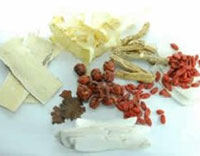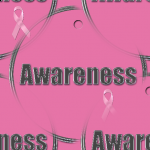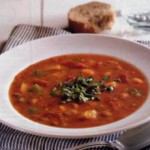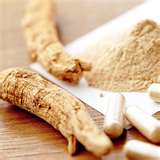How a Harvard-trained doctor began to appreciate Traditional Chinese Medicine, TCM.
As a child growing up in China, I was always aware of Traditional Chinese Medicine (TCM). TCM is what we refer to as Eastern medicine, in contrast to the Western medicine we know from U.S. hospitals. I never understood much about TCM, only that it somehow involves herbs and that many Chinese people used it. The more I progressed in my medical training in major U.S. academic centers, the more distanced I felt from TCM. Why should I learn about something that lacks evidence, when there’s so much to know about for which there is good research?
Last fall, I went to China on a research trip. While my study is primarily on its Western medical system, I was so fascinated by what I learned of Eastern medicine that I spent many free evenings observing TCM practitioners. There is so much I didn’t know. As a discipline, TCM is far too complex for me to understand in my short observation, but there are some very important “lessons from the East” that are applicable to our Western medical practice:
#1. Listen—really listen. The first TCM practitioner I shadowed explained to me that to practice TCM is to “listen with your whole body”. Pay attention and use every sense you have, he said. I watched this doctor as he diagnosed a woman with new-onset cervical cancer and severe anemia the moment she walked into his exam room, and within two minutes, without blood tests or CTs, sent her to be admitted to a (Western) medical service. I’ve seen expert clinicians make remarkable diagnoses, but this was something else!
“How could you know what you had and that she needed to be admitted?” I asked.
“I smelled the cervical cancer,” he said. “I looked and saw the anemia. I heard her speak and I knew she could not care for herself at home.” (I followed her records in the hospital; he was right on all accounts.)
#2. Focus on the diagnosis. I watched another TCM doctor patiently explain to a young woman with long-standing abdominal pain why painkillers were not the answer.
“Why should we treat you for something if we don’t know what it is?” he said. “Let’s find out the diagnosis first.” What an important lesson for us—to always begin the diagnosis.
#3. Treat the whole person. “A big difference between our two practices,” said one TCM doctor, “Is that Western medicine treats people as organs. Eastern medicine treats people as a whole.” Indeed, I watched her inquire about family, diet, and life stressors. She counseled on issues of family planning, food safety, and managing debt. She even helped patients who needed advice on caring for the their elderly parents and choosing schools for their child. This is truly “whole person” care!
#4. Health is not just about disease, but also about wellness. There is a term in Chinese that does not have its exact equivalent in English. The closest translation is probably “tune-up to remain in balance”, but it doesn’t do the term justice, because it refers to maintaining and promoting wellness. Many choose to see a TCM doctor not because they are ill, but because they want to be well. They believe TCM helps them keep in balance. It’s an important lesson for doctors and patients alike to address wellness and prevention.
#5. Medicine is a life-long practice. Western medicine reveres the newest as the best; in contrast, patients revere old TCM doctors for their knowledge and experience. Practicing doctors do not rest on their laurels.
“This is a practice that has taken thousands of years to develop,” I was told. “That’s why you must keep learning throughout your life, and even then you will only learn just a small fraction.” Western medicine should be no different: not only are there new medical advances all the time, doctors need to continually improve their skills in the art of medicine.
#6. Evidence is in the eyes of the beholder. Evidence-based medicine was my mantra in Western medical training, so I was highly skeptical of the anecdotes I heard. But then I met so many patients who said that they were able to get relief from Eastern remedies while Western treatments failed them. Could there be a placebo effect? Sure. Is research important? Of course. But research is done on populations, and our treatment is of individuals. It has taken me a while to accept that I may not always be able to explain why—but that the care should be for the individual patient, not a population of patients.
“In a way, there is more evidence for our type of medicine than for yours,” a TCM teacher told me. “We have four thousand years of experience—that must count for something!”
There is so much I have not covered about TCM. Its practices vary regionally, and no doubt, there are more and less capable practitioners (as there are in Western medicine). More research into TCM methods will be important. However, regardless of whether we Western doctors want to prescribe TCM treatments, we should recognize there is much to learn from Eastern medicine, including what it means to be a physician to really care for our patients. Upon my return from China, I, for one, have a new found appreciation for Eastern medical practice and a renewed understanding of holistic medical care.








